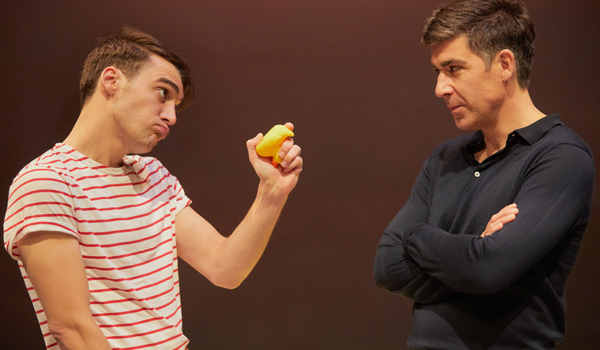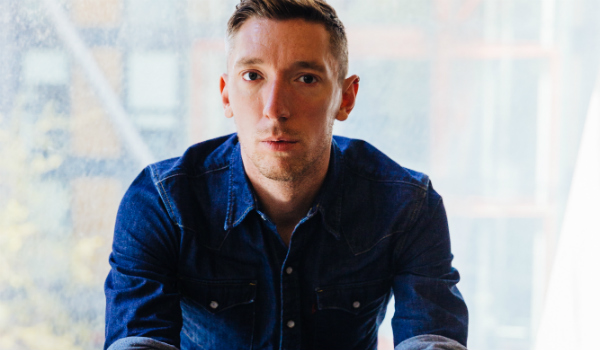Chris Thompson’s plays include Albion (Bush Theatre) and Carthage (Finborough Theatre). Carthage won a Pearson Playwrighting Award and was nominated for Best New Play and Most Promising New Playwright in the OFFIE awards. Chris was the Channel 4 Playwright in Residence at the Finborough Theatre in 2014. In 2013 he took part in the Kudos / Bush Initiative and the Royal Court invitation studio writers’ group. He writes for Run Riot about his latest play, Of Kith and Kin.
Through its twists and turns Of Kith and Kin asks: who is in charge and what happens when love is not enough? I’m interested in masculinity and the play puts a pin in gay relationships now. Daniel is 46 and grew up going to bars with blacked out windows and Oli, who is 14 years younger, wants the full white wedding with bridesmaids and lanterns released into the night sky. The play looks at a generation of gay men who have been wounded by their place in history and who we now punish because they can’t love us the way we want them to.
There’s a gritted-teeth kind of humour coursing through this show, it’s a very truthful and peek-through-your-fingers kind of play – and the good news is it’s funny. We’ve just finished a month run in Sheffield, and it’s been so moving to sit in the Gods and listen to the raucous laughter from the audience switch to gasps and pin-drop silences.

The idea for the play came from a conversation with friends about wanting children, and how personally, I’ve gone back and forth on the question for the last 10 years of my adult life. Being gay there’s an extra dimension of needing to “ask permission” in contrast to fertile straight couples who can go ahead without any questions or scrutiny. So I thought about an older gay character who, not unlike me, is over asking straight people permission for how he lives his life, and for whom a primary condition of the surrogacy process would be keeping it out the system.
The characters and structure presented themselves very quickly; it was a question of getting to know them really well and putting them in the three moments the play shows us and just letting them be. In a strange way, the play wrote itself. Audiences are watching draft four, and there have been no major structural changes in between its iterations. The three acts are tonally very different, but they belong to the same play. I write in a very precise way. Dialogue, for me, is like music, and I spend a great deal of time ensuring pace and structure are inherent in the dialogue. And that, line by line, the play delivers.
The majority of the play was written on the top floor of Brooklyn Library a couple of years ago; it was a cold March in New York and the local homeless population came to take shelter in the library. It occurred to me then that many writers take shelter in their plays, and I can’t let this be the case for me. I write from a very personal place. I believe it’s my job to stare hard into the light and peel off my veil of self-deception, to ask myself difficult questions, to wrestle with uncomfortable truths. It’s really about making conscious the unconscious and although that process is exposing and invasive, it’s worth it, especially when I hear audiences grappling with the play’s ending. When I look at the audience reactions at #OfKithandKin it’s ultimately rewarding.

I don’t think a play should be a place where a writer hides from her or his life, or writes about the life they wish they were living, which so often happens. Those plays are safe and fungible, and unbeknownst to the writer, their subconscious fears and desires dance a merry dance for all to see (but them) in act three. I made a promise to myself several years ago to live bravely and speak without fear, and it’s something I aspire to every play and every day. Emile Zola said it best: “If you ask me what I came to do in this world, I, an artist, will answer you: I am here to live out loud.”
